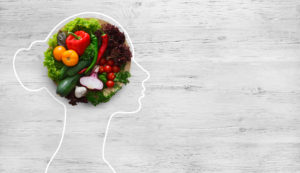 People diet for a lot of reasons. Some for aesthetic purposes, while others are trying to get an existing health condition under control. But results often fizzle out, if they occur at all. So, what are you supposed to do?
People diet for a lot of reasons. Some for aesthetic purposes, while others are trying to get an existing health condition under control. But results often fizzle out, if they occur at all. So, what are you supposed to do?
Stop dieting. Seriously.
Advertisement
Diets can feel good at the start. Maybe you’ve decided to limit fat or carbohydrate intake. A few weeks in, you might be noticing smaller numbers on the scale, improved blood pressure, and lower blood sugar. But then weeks later, numbers start treading upwards.
There is plenty of data to show that dieting doesn’t produce long-term effects for most people. This is because most diets are highly restrictive, unsustainable, or unappealing. So, after going in for a few months, they are abandoned and old habits resurface.
Focusing on macronutrients, calories, and constant measuring doesn’t sit well with most. Neither does the “I can’t” or “no” mentality most people take to food with dieting.
So, instead of focusing on a diet or restriction, think bigger. Look at how your overall lifestyle and eating habits may be contributing to the problems you want to fix and what you want to do about them.
For example, eliminating carbohydrates is unsustainable. Instead, find ways to include them that are better focused on controlling blood sugar, blood pressure, cholesterol, and weight.
Limiting intake of refined carbohydrates and replacing them with whole grains, fruits and vegetables is one place to start. No one is saying no soda or candy, just be careful with it. A treat a couple of times per month won’t derail consistently healthy choices.
Instead of adopting a “diet,” take a look at overall eating habits and recognize where you can improve.
There is plenty of data to suggest diets high in unprocessed plant-based foods, lean proteins, healthy fats, dairy, and more can reduce blood pressure, glucose metabolism, inflammation, and contribute to weight loss.
Advertisement
Further, eating these foods can help with calorie control. Plant-based foods and unrefined carbs are high in fiber, which has satiating effects. Lean proteins and healthy fats can have a similar appetite-lowering effect.
In conjunction with healthier food choices, getting daily activity can also lead to weight loss and improved health.
Going on a diet can produce short-term results, but that isn’t going to make a useful impact on your long-term goals. Getting a long-lasting handle on blood pressure, cholesterol, blood sugar, and inflammation through daily choices is the best way to go.
